This text deals with possible complications that may appear after total knee surgery. In many cases, these complications don’t occur, but it would be very useful to be informed about them, so that one can be prepared.
Complications
One of the most frequent complications that can appear is the loosening of the parts of the knee prostheses. In percentage, these parts loosen for one percent every year, so in ten years, they will be 10% loosened. If you experience severe pain in the knee area and stiffness, a surgeon may recommend another operation to be done.
Somewhere between 1% and 6% of total knee joint instability occurs and this problem leads to prosthetic loosening. Due to the instability, the total knee prosthesis may become destroyed. In some cases, this complication may lead to the removal of the total knee prosthesis. Other possible complications include fractures around the total knee prosthesis, patellar issues, patellar clunk syndrome, increasing rigidity of the total knee joint, swelling of the total knee joint, injury of the peroneal nerve, pain in the scar, and damage of the nerves that are settled around the knee.

Casting a Glance at Some of Complications
In percentage, in 6-30% of all total knee replacement surgeries patellar issues appear. If this complication appears, it can also be fixed with a new surgical process, but the pain can’t be prevented in some cases. The process of the treatment may be very difficult, and it includes changing the patellar components. In some patients, patellar clunk syndrome occurs, which means that, when they bend at an angle of 30-45%, they can feel a clunk, experiencing severe pain at the same time. The method of treatment in which this complication can be fixed requires lump removal. In 0.3% to 4% of the cases, the injury of the peroneal nerve appears.
The symptoms that may indicate this complication are tingling and numbness in the foot. If someone who had total knee replacement experiences it, it would be good to visit a doctor. Patients who already have arthritis have more chance of peroneal nerve damage than others. If a surgeon suspects that this nerve has been damaged, then the operation has to be postponed until the problem is fixed.
- Age is a non-modifiable risk factor. Aging alters the natural history of diseases: it is considered a risk factor for various diseases and a determinant for longer hospital stay and higher incidence of adverse drug reactions.
- The study comprised 70 octogenarians and 70 non-octogenarian patients as control group, all submitted to TKA. We analyzed the medical records of these patients, seeking for complications during the first postoperative year. Regarding the risk factors, we evaluated: age, sex, race, American Society of Anesthesiologists score, body mass index, smoking, hypertension and diabetes mellitus.
- In the control group, the incidence of complications was 7.1%. Whereas in the octogenarian group it was significantly higher, reaching 34.3% (OR 6.8; 95% CI 2.4-19.1). We found no association to sex, skin color, and comorbidities. Age is an independent risk factor for postoperative complications. Our data may help patients to acknowledge the risks of undergoing primary TKA and physicians to assess and adjust perioperative risk.
Pain in the scar appears in most cases after the knee replacement. Normally, it occurs after touching the scar, and as the scar heals, the pain decreases.
We hope that we were able to introduce you to total knee replacement surgery, but what should be emphasized is that these complications occur rarely.


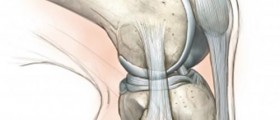
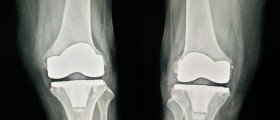







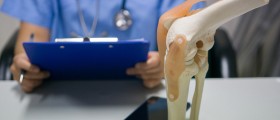

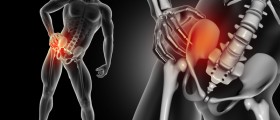
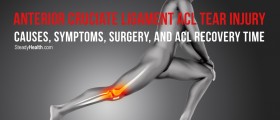

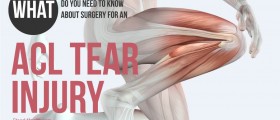
Your thoughts on this
Loading...